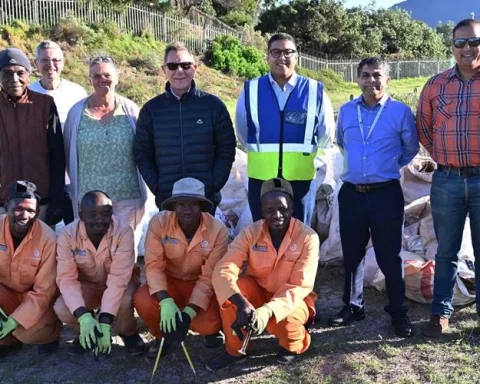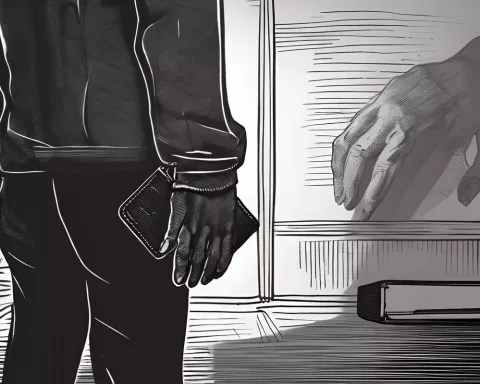The safety of women in South Africa is a concerning issue, as a recent investigation revealed that 96.4% of women in the country do not feel secure in their home province. The Western Cape was identified as the least safe province, with the majority of women feeling unsafe during routine activities and over 60% having been victims of crime. The study also showed that many women are considering emigration due to safety concerns, with top destinations including the UK, Canada, and Australia. However, the head of 1st For Women Insurance emphasized that a high crime rate does not necessarily mean a high frequency of crimes and that a comprehensive understanding of the situation requires a wider range of enquiry.
The Unsettling State of Women’s Safety in South Africa
Disturbing Findings from a Recent Investigation
A recent study conducted by 1st For Women showed that 96.4% of South African women do not feel secure in their home province, with the Western Cape being identified as the least safe. Approximately two-thirds of women felt unsafe walking alone during the day (66%) and nearly all felt the same walking alone at night (98%).
Disturbing Findings from a Recent Investigation
A shocking discovery was recently brought to the forefront by 1st For Women during an extensive investigation. This study unveiled that a staggering 96.4% of South African women do not feel secure in their home province. The Western Cape was identified as the province where women reported feeling the least safe. The insurance firm carried out a thorough survey involving 6,596 women from South Africa, aiming to measure their perception of safety while going about their daily activities within their respective provinces. They then compared these findings with crime statistics sourced from the South African Police Service (SAPS) from January to September 2023.
To analyze the results, they adopted a methodological approach that involved dividing the total responses by the total number of respondents for each province. They then adjusted the reported crime statistics for every 100,000 inhabitants per province. All provinces were assessed based on 20 unique factors, each given a standardized score out of 100. The final ‘Safety Rating’ was determined by the average of these scores.
Anxiety-Inducing Trends and Crime Statistics
The resulting data pointed towards an alarming pattern: an overwhelming majority of women reported feeling ‘unsafe’ or ‘completely unsafe’ during their routine activities in their provinces. Approximately two-thirds of women felt unsafe walking alone during the day (66%) and nearly all felt the same walking alone at night (98%). Over three-quarters of women reported feeling unsafe driving alone (77%), more than half were uneasy staying home alone (54%), and the majority felt insecure when socializing with friends (63%). Even more troubling was the fact that a significant 61% of respondents had been victims of crime. These crimes ranged from house burglary or break-ins (32%), cellphone theft (24%), handbag theft (13%), smash and grab (8%), gender-based violence (6%), to carjacking (5%).
Provincial Analysis and Emigration Considerations
On a provincial level, the survey found that Limpopo had the smallest percentage of women who reported feeling ‘unsafe’ or ‘completely unsafe’, as well as the fewest women who had been victims of crime. Mpumalanga and North West showed similar results. On the other hand, the Western Cape, followed by Gauteng and the Eastern Cape, were identified as the least safe provinces for women. A worrying 30% of the surveyed women were considering emigration due to safety concerns. The top destinations being considered included the UK (20%), Canada (18%), Australia (17%), New Zealand (13%), the US (10%), and the UAE (6%).
Seugnette van Wyngaard, the head of 1st For Women Insurance, provided insight into the Western Cape’s low safety index score of 37.47. She attributed this score to the highest reported crimes per 100,000 people for severe community-reported crimes, property-related crimes, and vehicle theft.
Implications and Interpretations
However, van Wyngaard emphasized that a high crime rate does not necessarily equate to a high frequency of crimes. She explained that the Western Cape has a robust infrastructure for crime reporting, which might suggest that the high crime statistics could be indicative of a supportive reporting culture rather than a persistent crime issue.
Despite the accuracy of the index in reflecting reported crimes and women’s perceptions of safety within their provinces, van Wyngaard warns that it only offers a part of the larger picture. She highlights the importance of recognizing that developing a comprehensive understanding of the crime situation and women’s safety perceptions requires a wider range of enquiry, extending beyond just reported crimes.
What was the aim of the investigation conducted by 1st For Women?
The aim of the investigation conducted by 1st For Women was to measure the perception of safety among South African women while going about their daily activities within their respective provinces and to compare these findings with crime statistics sourced from the South African Police Service.
What percentage of South African women do not feel secure in their home province?
The investigation conducted by 1st For Women showed that 96.4% of South African women do not feel secure in their home province.
Which province was identified as the least safe for women?
The Western Cape was identified as the least safe province for women in South Africa.
What percentage of women have been victims of crime according to the investigation?
The investigation conducted by 1st For Women showed that 61% of women surveyed had been victims of crime.
Which destinations are South African women considering emigrating to due to safety concerns?
According to the investigation conducted by 1st For Women, the top destinations for South African women who are considering emigration due to safety concerns are the UK, Canada, and Australia.
Does a high crime rate necessarily mean a high frequency of crimes?
According to Seugnette van Wyngaard, the head of 1st For Women Insurance, a high crime rate does not necessarily mean a high frequency of crimes. The Western Cape, for example, has a robust infrastructure for crime reporting, which might suggest that the high crime statistics could be indicative of a supportive reporting culture rather than a persistent crime issue.











